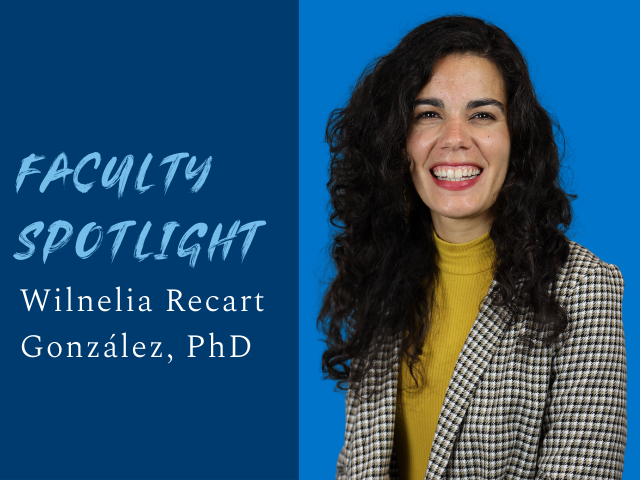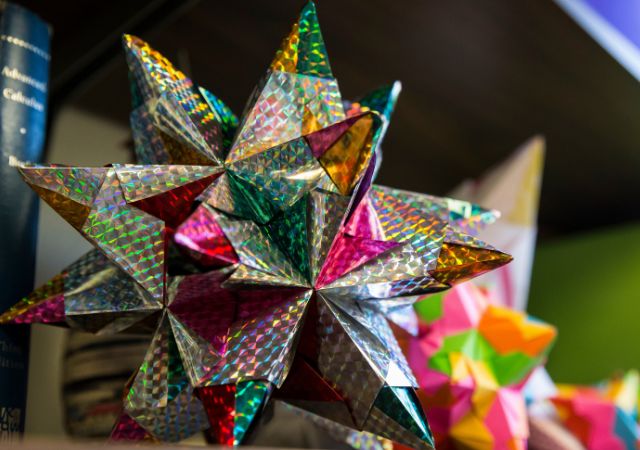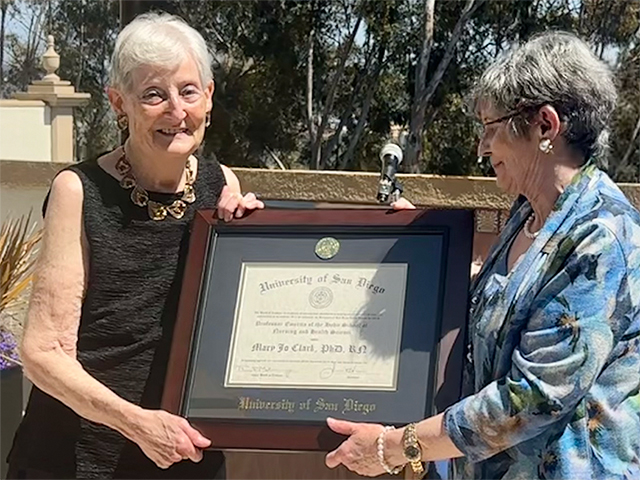Assistant Professor of Biology Leverages Interdisciplinary Interests to Encourage Scientific Discovery

For Assistant Professor Wilnelia Recart González, PhD, one of the best ways to understand science is through art. This semester, she organized a printmaking workshop in the College of Arts and Sciences Department of Biology, where participants transferred patterns of leaves and shells onto paper. During the pandemic, she arranged a cross-stitch workshop focused on extinct species. In her hobby of fiber art, she sees an opportunity for mindful reflection on Earth’s ecosystems.
“These events encourage conversations about extinction, climate change and human-created change,” says Dr. Recart González, who was a diversity postdoctoral fellow in the college before joining the University of San Diego as a National Science Foundation-funded postdoctoral fellow, and then an assistant professor. “I don’t see myself as only a scientist, and I enjoy exploring other aspects of my life in a place like the College of Arts and Sciences that wants you to do that, that wants to see the humanity of science, and what it means to be a human on this earth.”
Recart González is one of six new faculty members hired as part of the university’s collaborative hiring strategy that focuses on bringing new faculty from various disciplines under thematic areas to join the College of Arts and Sciences community. This hiring initiative coincides with the USD Horizon Project, launched in 2021, that reaffirmed USD’s commitment and responsibility to diversity, equity and inclusion as well as academic excellence.
Recart González, hired into the Climate Change and Environmental Justice cluster, believes USD’s focus on interdisciplinary, collaborative research and scholarship is ideal not only for herself but for her students examining biology and considering careers as scientists. She currently teaches Research Methods in Biology, where students explore the scientific method by conducting their own research projects, and Ecology, giving students a wider perspective on higher organization in biology, from the way individual species behave with each other to broader patterns like climate change.
“I show them case studies highlighting the types of ecological research we can do, and that is being done and invite scientists into the classroom to discuss the kinds of ecological questions that are being asked [in the field],” she says. “I want them to see themselves as scientists, in charge of pursuing their own knowledge.
Through her research, Recart González works to understand the mechanisms by which climate change affects floral traits like nectar production, potentially influencing how pollinators, like bees, forage for nectar and affect the seed and fruit production in plants. Recart González also champions opportunities for minorities in science and engages in outreach and advocacy to encourage middle and high school students to consider careers in science.
Recart González says her work has the added benefit of being not only stimulating and challenging but also provides a sense of closeness with her family in Puerto Rico, where she grew up. Their influence through caring for and interacting with nature and agricultural crops led her to choose a career in biology.
“The way they looked at the world and the knowledge they carry is powerful,” she says. “My uncle could tell when it was going to rain or what season was best for planting a particular crop. Understanding biology from a science perspective helped me see the world differently and made me feel more connected to my family.”
— USD News Center



